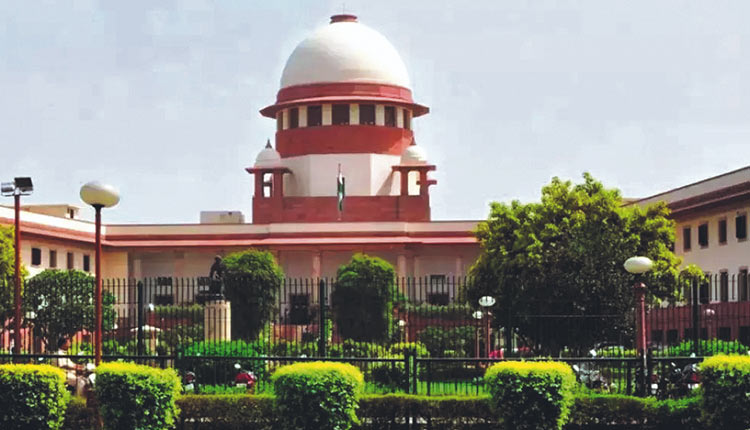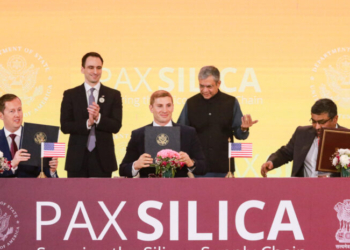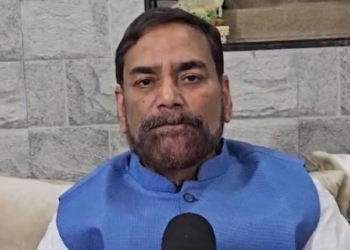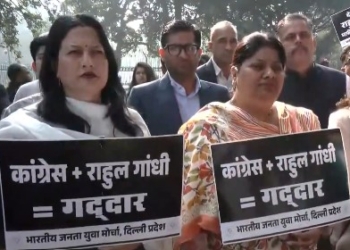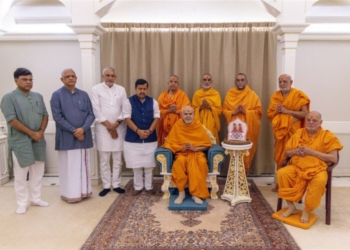New Delhi: The Supreme Court on Monday fixed February 12 for hearing a clutch of petitions challenging the law introduced by the Parliament, which excludes the Chief Justice of India (CJI) from the process of appointment of top officials of the Election Commission.
Appearing before a bench headed by Justice Surya Kant, advocate Prashant Bhushan apprehended that the pleas against the Chief Election Commissioner and the other Election Commissioners (Appointment, Condition of Service and Term of Office) Act, 2023 are not listed high on board on Tuesday and therefore, may not come up for hearing on the scheduled date (February 4).
Bhushan said that the tenure of the incumbent Chief Election Commissioner (CEC) is coming to an end on February 18 and prayed that the matter should be urgently for a final hearing, or else an interim order may be passed.
Solicitor General Tushar Mehta, the second highest law officer of the Centre, opposed the prayer for an interim order, saying that the Union government’s reply is ready and the matter should be fixed for a final hearing.
He noted that an interim stay on the implementation of the impugned law was not allowed by the top court in an earlier hearing.
Fixing the matter for hearing on February 12, the Justice Kant-led Bench said: “Better this matter is decided on merits.”
In the hearing on January 8, Bhushan had said: “The incumbent CEC is retiring on the 18th of February and the new Election Commissioner will have to be appointed. Now, the question is as to whether he will be appointed in terms of the Constitution Bench judgment or in accordance with this new law. I am requesting that this matter should be heard next week.”
Declining to fast-track the hearing scheduled on February 4, the Justice Kant-led Bench had remarked: “How many matters will we be able to hear urgently? We understand the importance of the matter and any good matter requires some time also. February is not far, remind us on February 3 in the morning, so we are able to take up the matter on 4th February.”
In March 2023, a Constitution Bench of the Supreme Court had held that the appointment of top officials of the Election Commission shall be done by the President on the advice of a panel comprising the Prime Minister, the Leader of the Opposition (LoP) in the Lok Sabha, and the Chief Justice of India.
“We declare that the appointment of the CEC and the other ECs shall be made on the recommendations made by a three-member Committee comprising the Prime Minister, LoP of the Lok Sabha and in case no LoP is available, the leader of the largest opposition party in the Lok Sabha in terms of numerical strength and the Chief Justice of India,” said the apex court, clarifying that its guidelines shall be in effect until Parliament makes a law in consonance with Article 324(2) of the Constitution.
After the apex court verdict, the Parliament introduced legislation providing that the Chief Election Commissioner (CEC) and the other Election Commissioners (ECs) will be appointed by the President on the recommendation of a Selection Committee consisting of the PM, the Leader of the Opposition (or the largest opposition party) in the Lok Sabha, and a Union Cabinet Minister to be nominated by the PM.
Several PILs were filed before the Supreme Court challenging the constitutional validity of the Chief Election Commissioner and the other Election Commissioners (Appointment, Condition of Service and Term of Office) Act, 2023.
One of the pleas filed by a Noida-based lawyer sought directions to set aside the gazette notification issued by the Union government on December 28, 2023, and to include the Chief Justice of India in the selection committee for the appointment of the CEC and ECs. Further, it sought direction to the Union of India for implementing an independent and transparent system of selection constituting a neutral and independent selection committee for appointment of the CEC and other ECs.
(IANS)




